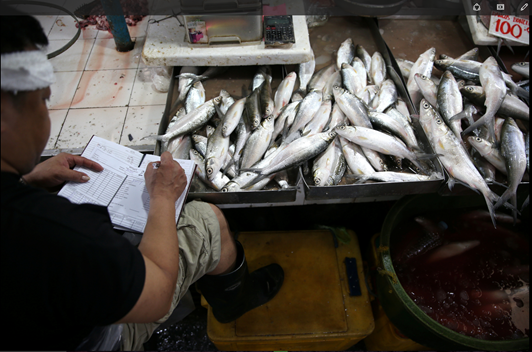For the first time, by encouraging further trade and investment, the Philippines and South Korea decided to improve their collaboration in the fisheries market.
Philippine Agriculture Secretary William Dar and the Korean Minister of Oceans and Fisheries Seong-Hyeok Moon jointly inked on the sidelines of this week's ASEAN-Republic of Korea Commemorative Summit the first ever Memorandum of Understanding (MOU) on Fisheries Cooperation.
It is anticipated that bilateral trade and relations would enhance cooperation between the two nations for the mutual benefit of their fisheries sectors by enhancing cooperation in aquaculture and encourage a solid trade and investment in fisheries and other key market areas.
Under the cooperation, the Department of Fisheries and Aquaculture will pursue and promote scientific and technical, developmental, research, economic and commercial cooperation.
The fisheries cooperation is take-off to the first agricultural partnership negotiated last year during President Rodrigo Duterte's first official visit to Seoul with the country's Ministry of Agriculture, Food and Rural Affairs (MAFRA).
Officials of the Philippines' agriculture department have been working continuously with MAFRA and agri-related agencies to develop new methods and strategies that will foster agricultural and rural development and facilitate market access for Philippine agricultural products.
According to Dar, the DA is committed to engaging and strengthening "bilateral relations with South Korea as one of the world's leading importers of food, accounting for nearly $30 billion in total food imports," Dar said.
"South Korea is one of the Philippine agricultural products' most lucrative markets," Dar pointed out. Korea is recognized as a developing the market for high-value exports of seafood and fisheries.
Exports of high-value seafood and fishery items to Korea have risen by an average of 17 percent since 2016, producing earnings of $28 million for the Philippines last year.
Tuna, abalone, sea cucumber, octopus, shrimps, and prawns, seaweeds and carrageenan is among the main Philippine fishing exports to Korea.
Meanwhile, the Philippines further solidified its alliance with the Republic of Korea through the signing of a 5-year tourism partnership program.
"With this renewed commitment to tourism cooperation between the Philippines and Korea, we look forward to sustaining and strengthening the already strong bond we have with Korea," said Department of Tourism Secretary Bernadette Romulo-Puyat.
The program, which runs from 2019 to 2024 or five years from the date of signing, aims to introduce joint ventures that will boost two-way tourism activities and align related efforts between the two countries.
The tourism department recorded 1,624 million arrivals from Korea, or a 23 percent share of the 7,128 million total tourist arrivals for that year.






